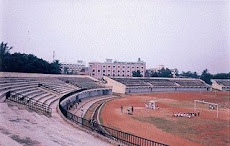 |
| Photo credit: Gopal Krishna Reddy, The Telegraph |
BERHAMPUR:
Restoration of power in Ganjam district, which was ravaged by cyclone Phailin,
is nearing completion. Earlier, chief minister Naveen Patnaik fixed November 15
as the deadline to restore power to all the 5.41-lakh consumers in Ganjam.
However, the authorities failed to meet the deadline. Now, Ganjam collector
Krishen Kumar says that power would be restored to all consumers within a day
or two. Out of 5.41 lakh consumers in Ganjam, electricity has been restored to
5.03 lakh till now. Power has been restored to all the 22 blockhead quarters
and 434 out of 475 gram panchayats till today, said sources in Southern
Electricity Supply Company (Southco), the private power distribution company
responsible for the region. “Restoration work is going on in a war-footing by
mobilising around 3,500 skilled workers. We are much ahead of the expectations.
We are putting all the efforts despite constraints. But there are still some
critical areas,” said Southco managing director Prasant Kumar Chowdhury. “Opposition
by villagers during installation of new poles due to standing crops in the
fields, obstructions by village committees for re-routing of lines and
insufficient skilled manpower delayed the restoration work. We filed several
police complaints and we sought their assistance to overcome the situation. We
faced such difficulties in Khandadeuli, Nandala, Gochabadi and other areas,”
said Chowdhury. The power distribution network suffered a huge damage because
of the cyclone that hit the district on October 12 and the subsequent floods.
Southco incurred a loss of Rs 552-crore due to the twin calamities. More than
3,500 engineers and workers were engaged in power restoration work, said
Southco sources. However, secretary of Southco Power Engineers’ Association
Bijay Chandra Jena said that inadequate stock of materials and manpower caused
hurdles in restoration of power. “Work targets were set without considering the
practical problems, there was no plan of action. Work executed on labour
payment basis instead of work contract basis caused delay in restoration,” he
said.
Source:
The Telegraph

















.jpg)


















































No comments:
Post a Comment